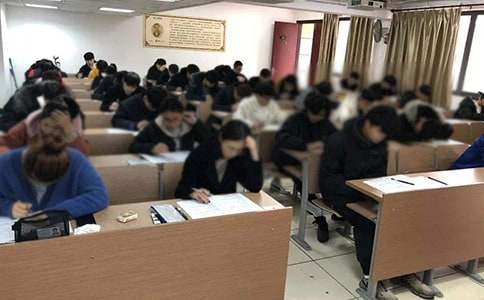- 相關推薦
2016年12月ACCA考試F4練習題(附答案)
(c) Precedent in Islamic Law

Sharia, or Islamic law, in its pure form derives its authority from two sources: the Quran, which is held to express the commandments and instructions of Allah as revealed to the prophet Muhammad, and the Hadith, which are held to be the practices and teachings of the prophet, and consequently to be divinely sanctioned.
The Quran, being the fundamental source of law upon which even the hadith is based, is primary precedent: its rulings are binding and not subject to any dispute or further interpretation. The hadith is secondary to the Quran, for it was collected and written down by humans. In spite of the care taken to authenticate the many thousands of examples remembered by the companions of the Prophet, it is recognised that due to human frailty the sources were prone to error, and this gave rise to the different categories of hadith depending on their authority.
After the Prophet‘s death there was a need, to develop a system of jurisprudence that would serve the dual purpose of safeguarding the central belief system of Islam, whilst simultaneously allowing the generation of legal rulings to deal with previously unprecedented matters, not dealt with directly in the Quran or the Hadith texts. This necessary process gave rise to the development of the science of understanding and interpreting legal rulings known as fiqh.
Fiqh in Arabic means ‘knowledge’, ‘understanding’, or ‘comprehension’。 Besides direct rulings from the Quran and hadith, the scholars of fiqh generated a body of additional rulings, using tools of jurisprudence, that serve as a third source of law.
The tools involved in giving life to this third body of rules were ijma (consensus), istihsan (legal extrapolation), ijtihad (interpretation), and qiyas (analogy)。
Some would argue that the body of Islamic jurisprudence has been completed by the jurists of the earlier centuries. Such views gave rise to the doctrine of Taqlid, which requires the adherence to, and the refusal to further develop through the use of itjihad, the legal principles established by the legal scholars of the second and third centuries of Islam. The more general opinion, however, would appear to be that Islamic law may be seen as consisting of two elements, the unambiguous and unchanging rules contained in the Quran and Hadith texts on one hand and the second element, developed through itjihad, which is still capable of development in line with social changes.
In conclusion it can be said that the Quran, and hadith, together with the legal rulings of scholars from the accepted schools of thought make up the body of Islamic law, the Shari‘ah. However within Islamic jurisprudence, only the authority of the rulings of the Quran, and at least the sahih (strong) hadith, cannot be challenged and constitute binding authorities. The rulings from scholars are, ultimately open to reinterpretation, nevertheless, if scholars unanimously agree on a certain point of law, the ruling is binding and has the force of law.
2 (a) There are numerous advantages to be gained from using arbitration rather than the court system:
(i) Privacy. Arbitration tends to be a private procedure. This has the twofold advantage that outsiders do not get access to any potentially sensitive information and the parties to the arbitration do not run the risk of any damaging publicity arising out of reports of the proceedings.
(ii) Informality. The proceedings are less formal than a court case and they can be scheduled more flexibly than court proceedings.
(iii) Speed. Arbitration is generally much quicker than taking a case through the courts. Where, however, one of the parties makes use of the available grounds to challenge an arbitration award the prior costs of the arbitration will have been largely wasted.
(iv) Cost. Arbitration is generally a much cheaper procedure than taking a case to the normal courts. Nonetheless, the costs of arbitration and the use of specialist arbitrators should not be underestimated.
(v) Expertise. The use of a specialist arbitrator ensures that the person deciding the case has expert knowledge of the actual practice within the area under consideration and can form their conclusion in line with accepted practice.
(vi) Finality. Appeals on arbitration decisions are limited and once the arbitrator has reached a decision the parties are bound by it and any award can be enforced through court action.
The United Nations Commission on International Trade Law (UNCITRAL) adopted a Model Law on International Commercial Arbitration in 1985. The model law applies where the parties to an arbitration agreement have their place of business in different states, or if the parties in dispute are in the same state, where the arbitration agreement designates a different state as the place where the arbitration has to take place. In addition, of course, the dispute has to arise from a commercial relationship, that is one relating to trade, although this term is interpreted widely.
【12月ACCA考試F4練習題附答案】相關文章:
2017跟單員考試模擬練習題(附答案)07-05
2017年excel考試練習題「附答案」07-30
2017年物流考試練習題(附答案)10-17
2018臨床檢驗技師考試練習題(附答案)07-10
大學CAD考試練習題目2017「附答案」10-04
2017證券從業考試考前練習題(附答案)06-04